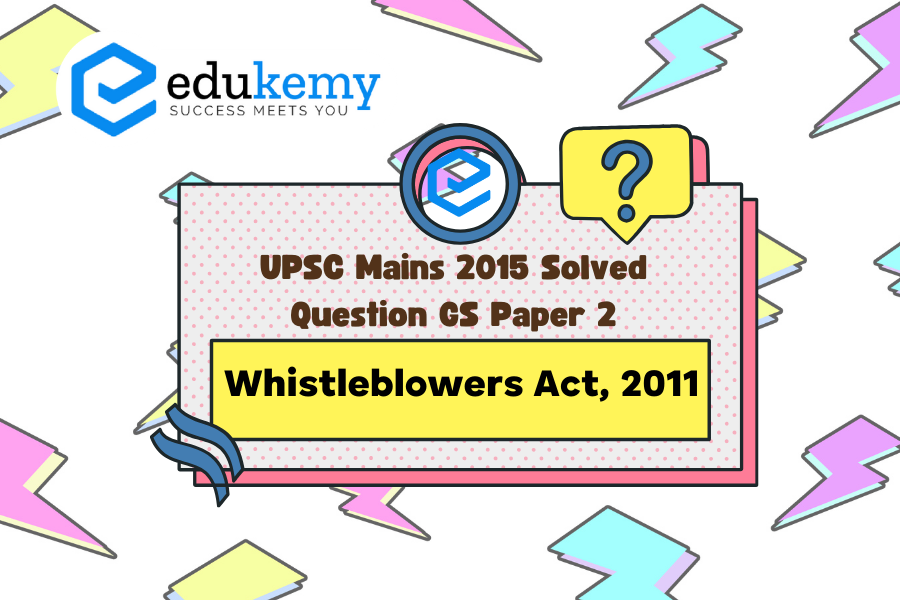The proposed amendment bill to the Whistleblowers Act, of 2011 has ignited a contentious debate within the parliamentary chambers, raising significant concerns about the potential erosion of protections for those brave individuals who choose to expose wrongdoing. The Whistleblowers Act, enacted to safeguard and encourage individuals to disclose information about corruption, malfeasance, or other unlawful activities, has been a cornerstone in fostering transparency and accountability. However, the suggested modifications threaten to undermine the very essence of this legislation, leaving a chilling effect on those who may consider stepping forward. If the amendment bill is passed, it could result in a situation where potential whistleblowers may hesitate or refrain from coming forward due to heightened fears of reprisals, thereby defeating the original purpose of the Act. The critical evaluation of this amendment should delve into the balance between national security concerns, the need for efficient governance, and the imperative to protect those who expose misconduct. The potential consequences of weakened whistleblower protections demand a thorough examination of the proposed amendments to ensure that the delicate equilibrium between accountability and security is maintained for the greater societal good.
Tag: Important aspects of governance, transparency and accountability, e-governance.
Contents
Decoding the Question:
- In the Introduction, define whistleblower and The Whistle Blowers Protection Bill, 2011.
- In Body, discuss about:
- Provisions Given in The Whistle Blowers Protection Bill, 2011.
- Key Issues and Analysis of the Whistle Blowers Protection Bill, 2011.
- Recent Developments in Whistle Blowers Protection Bill 2011.
- In Conclusion, try to quote the case of Satyendra K. Dubey and suggest measures to improve the Act.
Answer:
A whistleblower is a person, who could be an employee of a company, or a government agency, disclosing information to the public or some higher authority about any wrongdoing, which could be in the form of fraud, corruption, etc.. The Whistleblowers Protection Act, of 2011 lays down the complete framework to investigate alleged cases of wrongdoing. However, there are certain provisions in the bill which created controversy.
Provisions Given in The Whistle Blowers Protection Bill, 2011:
- The bill seeks to protect whistleblowers, i.e., persons making a public interest disclosure related to an act of corruption, misuse of power, or criminal offense by a public servant.
- Any public servant or any other person including a non-governmental organization may make such a disclosure to the Central or State Vigilance Commission.
- Every complaint must include the identity of the complainant.
- The Vigilance Commission shall not disclose the identity of the complainant except to the head of the department if deemed necessary.
- The Bill penalizes any person who has disclosed the identity of the complainant.
- The Bill prescribes penalties for knowingly making false complaints.
- The Bill aims to balance the need to protect honest officials from undue harassment with protecting persons making a public interest disclosure.
- The CVC was designated to receive public interest disclosures in 2004 through a government resolution.
- The Bill differs on many issues from the proposed Bill of the Law Commission and the 2nd Administrative Reform Commission’s report.
Recent Developments in Whistle Blowers Protection Bill 2011:
- Whistle Blowers Protection (Amendment) Bill, 2015, an amendment introduced to the Act was criticized because it dilutes protections to whistleblowers.
- The amendment Bill seeks to remove immunity provided to whistle-blowers from prosecution under the Official Secrets Act (OSA) for disclosures made under the Whistle Blowers Protection law. Offenses under the OSA are punishable by imprisonment of up to 14 years. The threat of such stringent penalties would deter the genuine whistle-blowers also.
- To bring the Whistleblowers Protection Act in line with the RTI Act. The amendments ignore the fact that the two laws have completely different objectives.
Whistleblowers in any society take on the severest of personal risks and often make unprecedented sacrifices to safeguard the rights of their fellow citizens from corruption and other forms of maladministration in public institutions. Cases such as Satyendra K. Dubey’s, whose murder in 2003 led to demand for such legislation, it is the moral obligation of the government to immediately promulgate the rules and implement the law to offer protection to those who, at great peril, expose wrongdoing.
In case you still have your doubts, contact us on 9811333901.
For UPSC Prelims Resources, Click here
For Daily Updates and Study Material:
Join our Telegram Channel – Edukemy for IAS
- 1. Learn through Videos – here
- 2. Be Exam Ready by Practicing Daily MCQs – here
- 3. Daily Newsletter – Get all your Current Affairs Covered – here
- 4. Mains Answer Writing Practice – here


